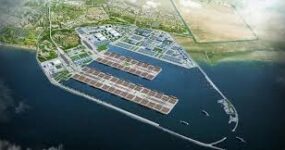With every step towards organizing the work of the state, Article 140 of the constitution emerges as an obstructive factor in the way of any legislation of important and basic laws to organize the work of the state in the areas of orientation towards strategic projects or establishing future development plans, in addition to the relationship between the center and the region.
Constitutionally, Article 140 has expired because the constitution set a fixed date for it due to the differences between the region and the center. This problem was overcome by forming a committee called the Article 140 Implementation Committee, which is headed by the head of the Fatah Alliance, Hadi al-Amiri. However, this committee has not taken a single step towards a decision over the years.
The work of the Committee for the Implementation of Article 140 includes a set of steps to settle the situation in the areas that witnessed demographic changes between 1968 and 2003, through normalizing the situation, conducting a population census, and holding a referendum to determine the fate of the areas included, especially Kirkuk Governorate.
The most important laws suspended since 2025 that regulate economic life is the oil and gas law, which is the most important problem between the region and the center, and its cause is Article 140. The suspension and delay of approving the annual federal budget is also affected by the implementation of the aforementioned article. The suspension of conducting the general population census, which is the main artery for organizing the strategic plans of the Iraqi state, is also delayed because of that article.
Today, the matter returns to the forefront again in the face of conducting the general population census, as the region requested postponing the census due to the failure to address the issue of the disputed areas between Erbil and Baghdad covered by Article 140.
Yesterday, Sunday, during a press conference followed by / Al-Maalouma /, Fahmi Burhan, head of the Kurdistan Regions Authority outside the Kurdistan Regional Administration, called on the federal government to postpone the population census to another date.
Burhan said, “All of us in Kurdistan must do our utmost to return the original Kurds of Kirkuk to the province so that the population census can be conducted in their presence.”
He added, “We are not against the population census, we consider it necessary, and we believe that it achieves the development goals that we seek, especially in the four governorates of the Kurdistan Region,” adding, “But since the issue of the disputed areas has not yet been resolved, we see it as better to postpone this census to another date.”
For his part, the leader of the Patriotic Union of Kurdistan, Sherzad Samad, confirmed that the Patriotic Union is in favor of conducting a general population census because it is necessary to organize scientific and practical planning for the Iraqi state in general.
Samad said in a statement to Al-Maalouma Agency, “The failure to resolve Article 140 related to the disputed areas between the region and the center is the main reason and major challenge facing the general population census,” noting that “the government has conveyed its assurances to the region regarding the non-conflict of the general census for the current year with the censuses of 57 and 67.”
He added, “The National Union sees the necessity of conducting it, provided that it does not conflict with the 1957 census, as approved by the Federal Court in 2010, which confirmed that.”
He pointed out that “there are Kurdish concerns about not adhering to the Federal Court’s decision in 2010 that the general census should not be an alternative to the 1957 census.”
Samad called on the political forces to “speed up and seriously resolve the issue of Article 140.”
It is noteworthy that the population census for the year will be conducted on the 20th and 21st of November, amidst Kurdish rejection.


